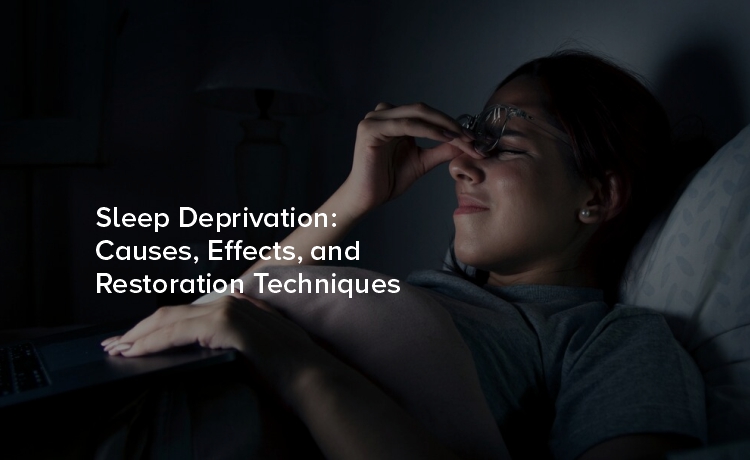
In a busy world that seems to operate round the clock, sleep can often be relegated to the back burner. We've all been there – burning the midnight oil or scrolling through our phones long past our bedtimes. But at what cost?
Sleep isn't a luxury; it's a necessity for a healthy life. Yet, we often treat it as something we can skimp on without consequences. This section will detail the various culprits that rob us of our essential rest, from lifestyle factors to underlying health issues. Understanding the root cause is the first step toward developing a sustainable solution that fits your individual needs.
The 'always-on' nature of modern life, coupled with the conveniences of technology, often leads to disrupted sleep schedules. Irregular working hours, evening engagements, and the temptations of digital entertainment can wreak havoc on our natural circadian rhythms, leading to chronic sleep deprivation.
Deeper than the fatigue felt after a restless night, sleep deprivation is linked to a host of medical conditions – obesity, cardiovascular disease, and mood disorders among them. We will examine how inadequate sleep affects our bodies on a systemic level, potentially becoming a silent driver of long-term health concerns.
In certain environments, sleep is not given its due importance. Societal expectations, such as the pressure to work late or attend evening events, can lead to sleep being the first compromise we make. Coupled with noisy or disruptive living conditions, these pressures can prevent us from getting the deep, restorative sleep we need.
The consequences of sleep deprivation are far-reaching and profound. From a compromised immune system to impaired cognitive abilities, this section will illuminate the spectrum of effects that even a single night of inadequate sleep can elicit.
Have you ever experienced 'brain fog' after a poor night's sleep? We'll explore the ways in which sleep deprivation impairs attention, decision-making, and creativity. For professionals, this can mean the difference between a productive day and one lost to inefficiency.
Sleep regulates some of our most important hormones – cortisol, ghrelin, leptin, and growth hormone. Without sufficient sleep, these hormonal systems go astray, potentially leading to weight gain, insulin resistance, and an increased risk of metabolic disorders.
One of the most immediate effects of sleep deprivation is its impact on the immune system. We will investigate why those who skimp on sleep are more susceptible to infections and how regular sleep can fortify our body's natural defense mechanisms.
With such dire effects, the quest to restore sleep may seem a monumental one. Fear not – this section is filled with actionable tips and techniques to help you reclaim your nights and rejuvenate your days.
The first step towards better sleep is ensuring your sleep environment is conducive to relaxation. We'll cover principles of sleep hygiene and how small adjustments to your bedroom and pre-sleep routine can prepare your mind and body for rest.
Consistency is key. By establishing a regular sleep schedule and bedtime routine, your body will learn to recognize the signals that it's time to wind down and prepare for sleep. Winding down with soothing activities and avoiding stimulants like caffeine in the hours leading up to bed can support this process.
What you eat and how you move play a role in your sleep quality. We will discuss how a balanced diet and regular exercise can positively influence your ability to fall and stay asleep.
In a world of constant stimulation, learning to quiet the mind is a skill worth mastering. Practices like meditation, deep breathing exercises, and progressive muscle relaxation can be powerful tools in the fight against sleep deprivation.
For those with chronic sleep problems, seeking the help of a sleep specialist may be necessary. This section will outline the various therapies and medical interventions available, such as cognitive-behavioral therapy for insomnia (CBT-I) and prescription medications.
Sleep deprivation is a silent epidemic, sapping the vitality from our lives in ways that are often undetected until it's too late. By acknowledging the importance of sleep and respecting its necessary place in our daily lives, we can begin to reverse the damaging trend of sleep neglect. Armed with this guide, you can take meaningful steps toward restoring your nights and living each day to its fullest potential.